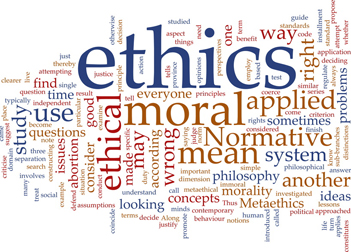By Simon Knutsson
First written: Oct. 9, 2016; last update: Dec. 19, 2016
 As I see it, effective altruism has two key parts: The altruism part is that one should be more altruistic, for example, donate more. The effectiveness part is that one should choose effective ways of making the world better (or less bad). This leaves many questions open. In particular, effective altruists can have conflicting values. (A caveat: This page is under construction and not comprehensive or balanced yet.)
As I see it, effective altruism has two key parts: The altruism part is that one should be more altruistic, for example, donate more. The effectiveness part is that one should choose effective ways of making the world better (or less bad). This leaves many questions open. In particular, effective altruists can have conflicting values. (A caveat: This page is under construction and not comprehensive or balanced yet.)
Humans vs. other animals
How important is it to help humans compared to other animals? Magnus Vinding, an animal advocate and friend of mine, has called the effective altruism movement “profoundly speciesist.” GiveWell has a history of a strong focus on humans over other animals, but has over the years moved towards more concern for non-human animals. For example, the Open Philanthropy Project, formerly known as GiveWell Labs, now has farm animal welfare as one of its focus areas, and it has given several grants in that area. I would still say that GiveWell and the Open Philanthropy Project do not care about non-human animals as much as other organizations in the effective altruism sphere that I am or have been affiliated with, such as Animal Charity Evaluators, the Effective Altruism Foundation, the Foundational Research Institute and Sentience Politics.
Environmental conservation vs. wild-animal suffering
Environmentalist effective altruists could want to preserve the environment for its own sake. I seldom hear environmental preservation advocated as an end in itself in effective altruism forums. There is a Facebook group called Environmental Effective Altruism but it only has eight members. (On Dec. 6, 2016.)
On the other hand, those who, like me, are primarily concerned with wild-animal suffering may believe that habitat loss is the lesser of two evils, because of the cruelties in nature. Those working to reduce wild-animal suffering have different values and different approaches. The organization Animal Ethics stands out for the attention it gives to suffering in the wild, and it has a fairly mainstream approach, advocating moderate interventions in nature, awareness raising and more research on how to reduce wild-animal suffering. Sentience Politics similarly raises awareness about the importance of wild-animal suffering. Brian Tomasik personally has a more controversial stance: he has written about the general importance of wild-animal suffering, but also controversial texts such as one titled “Habitat Destruction, Not Preservation, Generally Reduces Wild-Animal Suffering.”
Happiness-focus vs. suffering-focus
This is the most important dichotomy. Happiness-focused effective altruists are willing to accept or risk much extreme suffering as long as sufficiently many other happy beings could be brought into existence. Suffering-focused effective altruists say that the focus, in practice, should be to reduce severe suffering, even if this means that much fewer happy individuals will be brought into existence. My impression is that the Centre for Effective Altruism is located far towards the happiness-focused end of the spectrum, and that the Foundational Research Institute, where I work, is located far towards the suffering-focused end. As an illustration, Toby Ord is a Trustee at the Centre for Effective Altruism, who is “very sympathetic towards Utilitarianism.” I would label him clearly happiness-focused. One can compare his essay “Why I’m Not a Negative Utilitarian” with my reply to it, and my essay “How Could an Empty World Be Better than a Populated One?” Another practical example of suffering-focus is that Olivier Bertrand, Co-founder and President of Effective Altruism France, contrasts the goals of reducing suffering and adding years of life, and argues that there should be metrics that measure suffering reduction, as alternatives to standard health intervention metrics such as DALYs, QALYs and HALYs (Health-Adjusted Life-Years) that are used in the effective altruism sphere.
My work nowadays
I work on which values we should have, and my take so far is that effective altruists should be antispeciesist and focus on reducing extreme suffering.